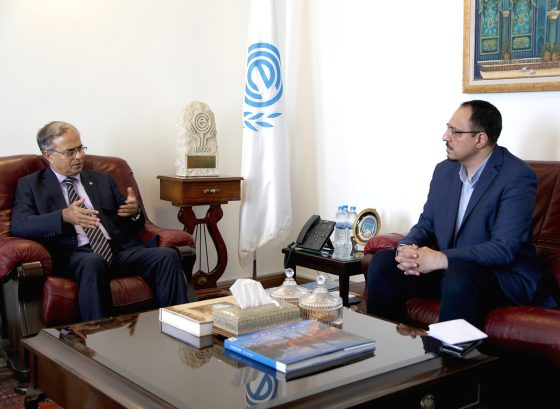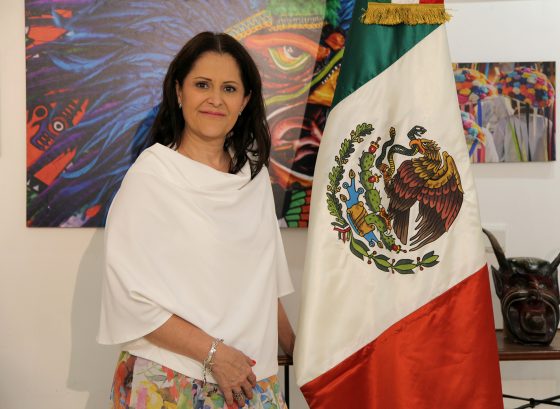“Respect is the Key to Making Friends and Enjoying Diversity” Believes Wife of the Brazilian Ambassador to Iran
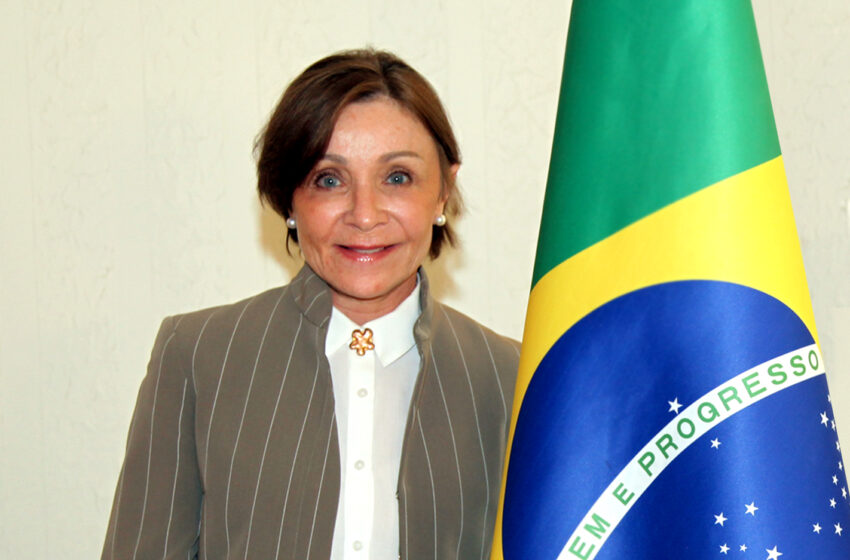
The wife of the Brazilian ambassador to Iran is an educated person who spent her childhood and young adult years in a family committed to a well-rounded education. She learned different foreign languages and chose journalism and law as her majors in university. Mrs. Cristina emphasizes the importance of women’s independence and gender equality and believes that the feminist movement has played a key role in improving the situation of women in Brazil. She considers the life of a diplomat’s spouse an invaluable experience as it has provided her with the opportunity to travel to different countries and get acquainted with diverse cultures. She assumes this lifestyle brings diplomats’ children multiple experiences not afforded to other children. Mrs. Cristina also points up the significance of mutual respect between people from different cultures and backgrounds, considering it the main key to building successful relationships.
AVA Diplomatic’s Exclusive Interview with Mrs. Diva Cristina Gradilone,
Wife of the Brazilian Ambassador to Iran
Where in Brazil were you born and where and how did you spend your childhood and young adult years?
I was born in Rio Claro, a city close to the capital São Paulo, where the families of my parents were from. When I was 6 months old, we moved to the big city where I lived all my childhood, teen and young adult years. We lived in a house with a big garden and backyard, where I played with my siblings (I have two sisters younger than me), cousins and friends. My paternal grandmother was widowed and lived with us. She played an important part in our education growing up. She was an elementary school teacher (as was my mother) and taught us to read and write from a young age. By the time we started kindergarten we were already alphabetized.
What was your father’s profession?
My father was an economist and a business administrator. He led a busy professional life, holding seats as CFO and CEO of large companies.
What activities were you keen into as a teenager? How did you become interested in journalism?
My parents were committed to giving their children a well-rounded education in which we would learn foreign languages, play an instrument, do sports and enjoy art forms in general. At university, I graduated in Journalism and Law; studied piano at the Conservatory (I am a certified piano teacher) and classical ballet. I practiced swimming and became fluent in English and Spanish. Later I studied Italian and French.
I don’t know exactly why I became interested in journalism, but I think I mostly liked the idea of it not being a monotonous job. The journalist’s routine is so varied, each day covering different news. I think that was what attracted me then.
Who influenced you the most when you were a teenager?
My father, mother, grandmother and my godfather, my mother’s brother.
What was your first job after graduation?
While still at university I worked as an intern at two prestigious newspapers: “O Estado de S. Paulo” and “Folha de S. Paulo”. After graduating, I wrote for a magazine before being hired by the Italian news agency, ANSA, as a writer and translator.
You were pointing out to the people who influenced you, and you mentioned your father, your mother, your grandfather, and your godfather. I’d appreciate it if you explain about the importance of family influences in Brazil.
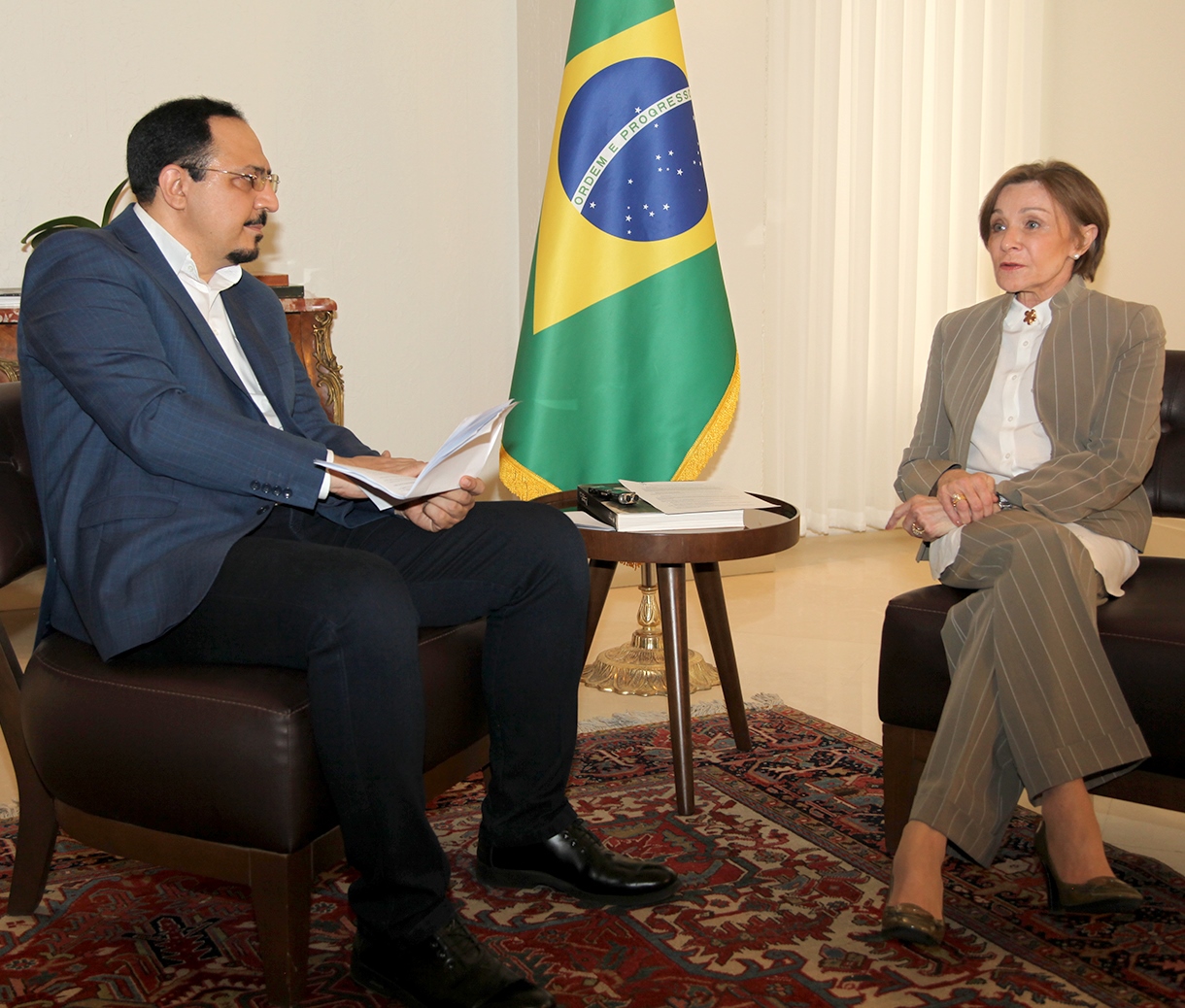 In my opinion, family, not only in Brazil, but all over the world, is the source of peace for people. For us, family means the same thing.
In my opinion, family, not only in Brazil, but all over the world, is the source of peace for people. For us, family means the same thing.
My parents were very young when they got married. They tried to raise us very well so that we could be modern and independent. Being independent was the most important thing for our parents in our upbringing and not to be girls who set their hearts on marriage in order to succeed.
As my father used to say, marriage is like a lottery and its outcome is unpredictable. He taught us that even if we didn’t have a successful marriage, we could overcome problems on our own and be recognized as an individual independent from our spouse. This is what I wish for all women.
For me, the first influential person in my life was my paternal grandmother, who constantly encouraged me and the other grandchildren to learn. She always told us that what keeps family together is mutual respect, not obedience.
My grandmother also advised us to take care of our health and do some exercise. In fact, she had a great influence on the formation of my personality. It could be a matter of interest for you to know that she was one of the promoters of women’s suffrage in Brazil in the 1920s.
Was your grandmother a political activist?
She was an elementary school teacher, but she had a role in promoting this movement by talking about it.
What has been the most prominent achievement of the Brazilian feminist movement in recent years, and what significant developments have this movement experienced over the years?
That is a tough question. Perhaps the most significant change and impression of this feminist was on the Brazilian constitution. As you may know, until 1985, Brazil was ruled by a military dictatorship. Then, after a transitional period, in 1988, women received equal rights as men.
It should not be forgotten that until 1978, there was no right to divorce in Brazil. Back then, women were not allowed to remarry after a divorce and had to go to neighboring countries to get married, but from 1978 onwards, that restriction has been corrected and women can marry again after a divorce. Before that, some couples lived together; they could not register their marriage, however. I think the women’s movement should have started earlier, for example in the 60s, so that women could achieve more rights.
How did you meet your husband? What qualities in him attracted you?
We met at university. We dated for about two years before getting married. His easy-going nature, his humanitarian ideals, his kindness, his dedication in pursuing his professional goals certainly pulled me to him.
What are the wedding rituals and traditions in Brazil? How was your own wedding party celebrated?
In Brazil weddings are traditionally celebrated with a bridal reception which usually follows the church ceremony. Our wedding followed tradition. We got married first at a beautiful catholic church. From the church we and all the guests went to the reception hall, where we were officially married under civil law. The party followed, with a big dinner, music, dancing etc.
In Brazil, are the expenses related to the wedding party (such as renting a hall, catering, etc.) and providing a dowry borne by the family of the bride or the family of the groom?
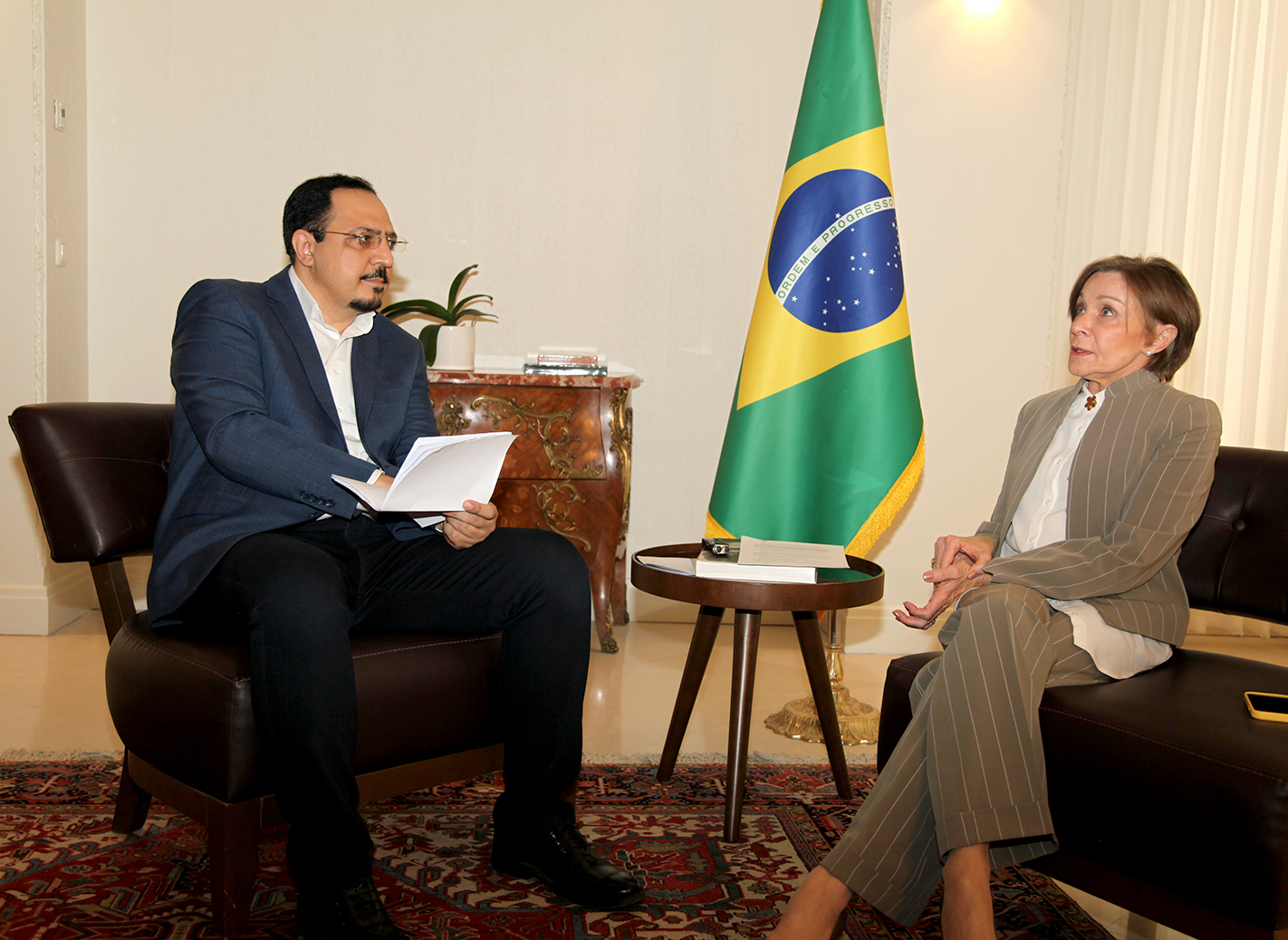 Traditionally, the family of the bride pays for the wedding expenses and the family of the groom offers the newlyweds something they need to start their new life. But today this has changed a lot, with both families sharing costs, including the bride and groom themselves.
Traditionally, the family of the bride pays for the wedding expenses and the family of the groom offers the newlyweds something they need to start their new life. But today this has changed a lot, with both families sharing costs, including the bride and groom themselves.
There is no dowry as an institution in Brazil since 1889 – so it has been abolished 135 years ago.
Under civil law, marriage is a contract between two people and in Brazil today it is an egalitarian relationship: husband and wife have the same rights, both are responsible for maintaining the household, both have the same rights in relation to their children. There is no “head” of the family as in older days.
What challenges and opportunities does life bring as a diplomat’s spouse?
First of all, for me it is a privilege to be at my husband’s side to represent Brazil during these last 40 & some years.
In my opinion the opportunities outweigh the possible challenges one may encounter. And it is also a privilege to be able to travel the world, meet different people, learn and appreciate different cultures.
For me in particular, one who didn’t want a routine/boring job or a boring life, the life of a diplomat’s wife fell right on my lap and it has always felt right for me.
How much has your husband’s career influenced the upbringing of your children?
I imagine it has influenced a lot. Growing up, diplomat’s children have multiple experiences not afforded to other children. They are exposed to many cultures, travel around the world, meet, interact and make friends with boys and girls from other countries and cultures. It is a very rich exchange and one which only few can take part in.
Although I realize our children appreciated their “special” upbringing, they decided not to follow in their father’s steps: one daughter is a teacher and the younger one works in publicity.
Are there any special rituals and traditions related to the birth and naming of a child in Brazil?
As far as I know, our traditions are related to the Catholic and Christian evangelical denominations. Very important is the Christening of a child, which can happen anytime from 2 or 3 months old.
What place does music and dance have in Brazilian culture?
Music and dance are a very important part of Brazilian culture and have a central role in our everyday life. Brazilian music is known the world over for its unique rhythms, like samba, bossa nova and many other styles. Traditional folk music and songs are cultivated all over the country, with every region having its own traditions.
To what extent does Brazilian cuisine reflect the country’s cultural diversity?
Brazilian cuisine reflects the mix of cultures which created what we call “Brazilian”. Our cuisine has influences from the indigenous peoples, the enslaved Africans, the Portuguese who colonized the country, not to mention the waves of immigration, which brought to Brazil many Europeans, like Italians and Germans, Asians, like Japanese and Korean and middle easterners, like the Lebanese and Syrian.
How have you adjusted traditional Brazilian values to the multicultural environment of your diplomatic life?
Brazilian values are by and large the same values of the Western societies. Adjustments in my case were minimal.
Given your social activities background in Brazil, what are the most prominent social problems that the country is dealing with?
I never worked in social activities or programs. As an intern journalist I was given the task of reporting on a few issues related to education and health, which still seem to be the areas that need more attention in Brazil.
In your opinion, what are the biggest cultural differences between Iran and Brazil?
We are very different in all aspects, from religion to way of life, culture, organization of society. But the sympathy and great affinity our two peoples feel toward each other has always brought us close together.
What was your first impression of Iran when you first entered the country? What things in Iran have surprised you?
To be honest, my first impression was the beauty of the mosques and monuments in Tehran… and the terrible traffic jams.
Which Iranian food is closer in taste to Brazilian cuisine?
Perhaps the rice dishes. Our Brazilian staple food is rice and beans. Rice is sauteed with onion and garlic, while the beans are usually cooked with pork cuts.
As a member of the Diplomatic Spouses Group in Tehran, how has this group helped you to be more productive in Iran? Please tell us about the important achievements of membership in this group.
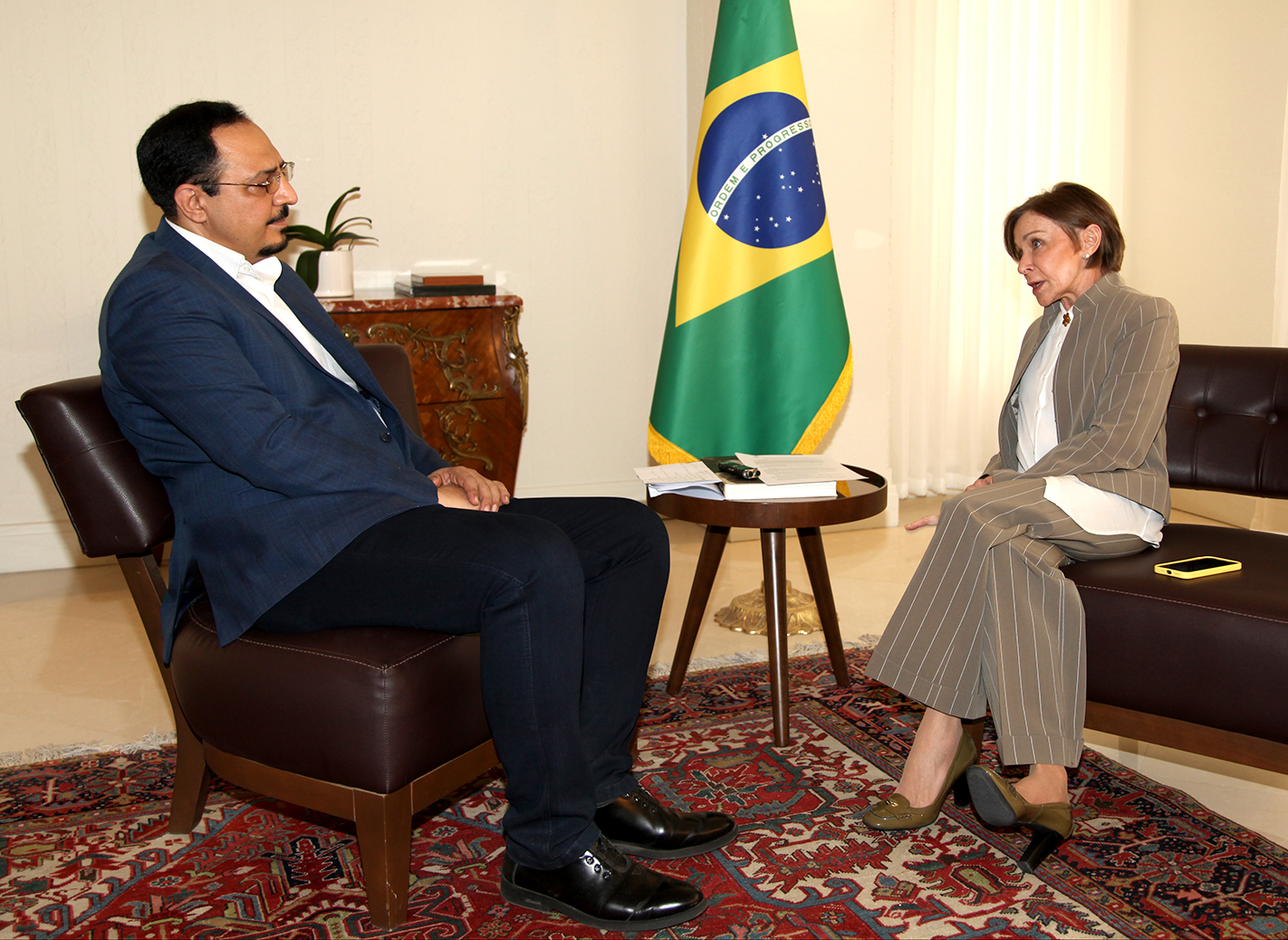 The DSG has helped me a lot. However, membership in this group is not a case of “productivity” or “achievement”. I’ve been a member of several versions of DSG in all the countries I’ve lived in. Their goal on the one hand is to help newcomers navigate their new reality; on the other hand, it is to introduce the culture of the host country to its members. DSG Tehran is very active in many fronts with its special interest groups which make us explore the fascinating facets of Iranian culture and society.
The DSG has helped me a lot. However, membership in this group is not a case of “productivity” or “achievement”. I’ve been a member of several versions of DSG in all the countries I’ve lived in. Their goal on the one hand is to help newcomers navigate their new reality; on the other hand, it is to introduce the culture of the host country to its members. DSG Tehran is very active in many fronts with its special interest groups which make us explore the fascinating facets of Iranian culture and society.
Mr. Ambassador was posted to Washington as a diplomat from 1983 to 1987. To what extent did your preconceived mindset about the United States match your expectations? Please tell us about your memories in Washington.
That was my husband’s first diplomatic mission, but not my first time visiting the United States. Therefore, I already had an image of the country. This mindset was formed from a summer course I had spent in Los Angeles, California, when I was a teenager. Although that course only lasted one summer, it was a very good and fulfilling experience for me. Coexistence with American students was a fine experience.
During my stay in the United States, I felt contented to see progress, technology and the happiness of the people. Technology was always available to people and things were done easily. In fact, I witnessed an advanced society where things were done very easily and I did not notice anything negative there.
Mr. Ambassador was sent to Colombia in 1987. In the last year of his tenure in Bogota, violence in the country increased and presidential candidate Luis Carlos Galán was shot dead. What emotions did you experience in Colombia during that time?
At that time, there was guerrilla warfare ongoing and we saw many things. For example, there was an armed conflict just three or four blocks away from our residence. We went through a hard time, but I must also note that Colombia is a very beautiful country.
So, in Colombia, did you feel your lives are truly in danger?
Somehow yes but I cannot say we were that much close to danger, since those incidents were not against us. Geographically, they were merely happening near us.
After Colombia you went to Suriname, a country that faced civil war and a military coup during Mr. Ambassador’s mission. What memories do you have of that time?
I cannot say we had a difficult or dangerous life. We had our normal, everyday life because we were there at the diplomatic level. Of course, those dangers existed, but they were always away from our neighborhood.
After Suriname, alongside Mr. Ambassador, you went to the UK. Did you encounter the crisis of the mad cow disease outbreak and infected milk there?
That incident did not occur in our time. In regard to mad cow disease, I should say that if the infected cow meat and offal are not used, this disease does not spread to humans. Fortunately, we were far from it.
I would say that being in the UK not only was a challenge for us but also it was a privilege. I learned English when I was seven years old. As I said before, our family placed great importance on learning, and I learned English and Spanish at an early age. Our three-year-stay in the UK was a rich and fruitful experience of culture and beauty that we were able to take advantage of, and I am very satisfied and happy about it.
You were in Japan from 1997 till 2001. What memories do you have of your time there?
Regarding Japan, I would say that it is the most developed country that we can talk about. Everything in Japan is meticulously organized and the infrastructure of this country is perfect. Besides, this is a very clean country.
As for the Japanese people, I must say that they sow the seeds of respect. Respect for the elderly and respect for each other is totally evident in Japan.
After being in New Zealand, you went to Turkey, which had just experienced a coup against Recep Tayyip Erdogan.
We lived in New Zealand for four years. I can say New Zealand is a big beautiful country with beautiful people and great civilization. And about Türkiye, I should say that when we entered the country, that coup had already happened as we entered Türkiye in November 2016 and it had already happened in July that year.
What problems did you encounter during your time in Slovakia, which coincided with the COVID-19 pandemic?
What we went through in Slovakia during the pandemic was not as difficult as Brazil, Iran, or Turkey. These are large and populous countries, but Slovakia has a smaller geography and a much smaller population.
It is a fact that we could not have much interaction with people, but it was not like we were completely confined. The lockdown started in March but was removed after a while and this happened intermittently.
In point of fact, after some time in quarantine, they opened up the space for people to experience normal life. It is worth mentioning that during that time, we traveled a lot, both within Slovakia and abroad.
If, rather than Brazil, you were supposed to choose a country to live in, which country would you choose and why?
It is a hard question, but if I had to choose a country other than Brazil, it would be Italy or England.
The reason is that I feel home in Italy. I also have Italian citizenship and I can speak Italian. About England, as I said earlier, I can speak English since I was a child and I am familiar with the culture. So, I feel comfortable there.
What lessons have you learned from living abroad and different cultures?
I think there is only one main lesson: learn to respect. Respect each other, no matter the background, culture or religion. Respect is the key to making friends and enjoying diversity.
I hope that this interview can be useful for your readers, giving them a picture of what it is to be a diplomat’s spouse. And if I could give some advice for young people today trying to choose a career, I think diplomacy and international relations are exciting fields to follow. A rewarding and meaningful career both professionally and personally. Even as a spouse.
If you had a son, would you encourage him to enter the diplomatic field like your husband?
My suggestion to my son, I do not have a son, though, would be similar to the one I made to my daughters. In Brazil, we basically do not interfere in our children’s career choices and we encourage them to pursue their interests.
I think diplomacy is a very fascinating area for someone who is interested in it, as they can get to know many cultures and people. If we were not into this, none of the other professions would have helped us get to know these cultures and people to this extent. Therefore, if I had a son and he wished to enter this field, I would encourage him to do so.

